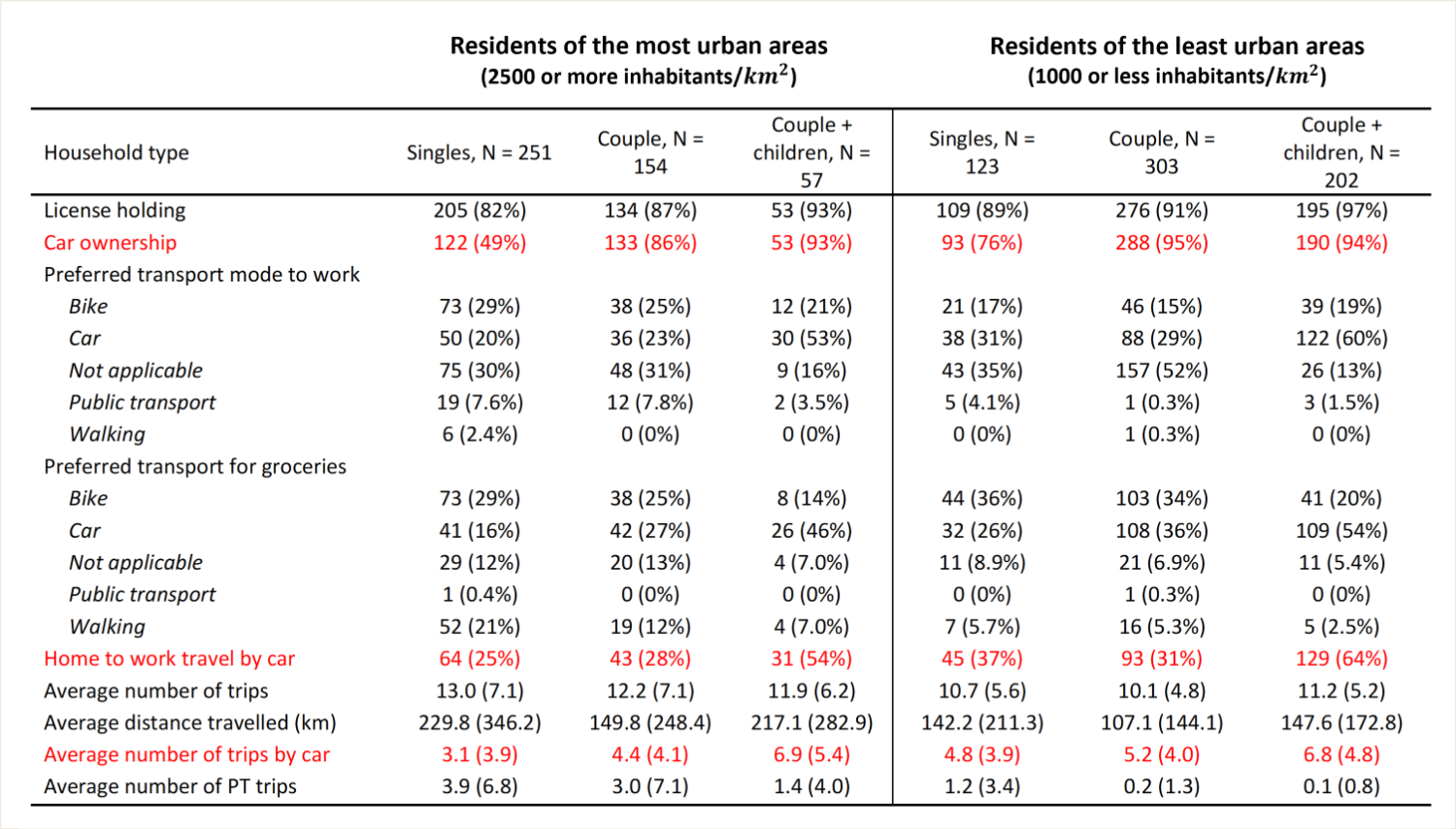Residential urbanism and aging
Student information
Author: Femke Herben
Institution: Erasmus University Rotterdam
Graduation year: 2022
The impact of residential urbanism and aging of young adults on car travel demand in the Netherlands
Travel demand in the Netherlands has been decreasing over the past two decades. This applies particularly to car travel by young adults and urban residents. Despite this, over 50% of all trips in the Netherlands are still made by car. The impact of urbanisation on car travel demand and the development of car travel by young adults in the longer term is still not clear.
This research examines the role of residential urbanism in car travel behaviour for different types of household composition in the Netherlands. It also explores the development of car travel behaviour among young adults.
Two waves of data from the Dutch Mobility Panel, from 2013 and 2019, were selected. Participants from waves, aged 18 and over, were asked to complete a three-day trip diary. This enabled changes in demographic characteristics together with changes in car travel behaviour within this group to be analysed.
The analysis revealed that residential urbanism is an important factor for determining car travel behaviour. However, residential urbanism does not affect all household types in the same way. It’s clear that households with children travel by car more frequently whereas singles, especially in cities, are more inclined no to travel by car.
The results imply that urbanisation has the potential to decrease car travel demand among single person households and couples. However, as young adults age, they exhibit similar car travel behaviour to older adults.

